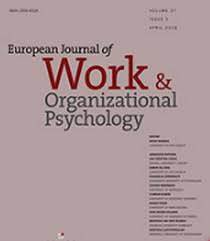EWJOP Special Issue. Teamworking Virtually: Business as usual?
20.02.2020

EWJOP Special Issue. Teamworking Virtually: Business as usual?
Guest Editors:
-
Patrícia Lopes Costa, PhD (Contact Person), UCP - Católica Lisbon School of Business & Economics, Lisbon, Portugal
-
Ana Margarida Graça, PhD, Henley Business School, University of Reading, United Kingdom
-
Pedro Marques-Quinteiro, PhD, ISPA - Instituto Universitário, Lisbon, Portugal
-
Catarina Marques Santos, PhD, Maastricht University, School of Business and Economics, Maastricht, The Netherlands
-
Ramón Rico, PhD, The University of Western Australia, Australia
According to the European Political Strategy Centre (2016), one of the most relevant trends and transformations that work is undergoing, both in Europe and worldwide, is the breaking down of jobs into projects that “assemble physical or virtual teams, across borders or time-zones” (p. 2). Working virtually challenges team members to work from a distance with one or more colleagues, relying on technology to mediate their interaction. However, considering the prevalence of the use of technology to communicate among team members, “a team with co-located members does not automatically preclude members from interacting virtually or even prevent the team from being highly virtual” (Kirkman & Mathieu, 2005, p. 702). Therefore, and considering virtuality as a continuum depending on geographic dispersion and technology usage (e.g. Cohen & Gibson, 2003), all teams are now, to some extent, virtual.
Therefore, it is an exciting time for team scholars as the dilution of rigid boundaries between “virtual” and “non-virtual” teams becomes more evident and leads us to pose the question of what is distinct in teamworking virtually, as opposed to face-to-face.
Our aim with this Special Issue is to address the specific implications of working virtually (namely in multiple projects simultaneously) for team effectiveness, both in what tangible outputs or products, and influences on team members (collective and individualistic) are considered. Simultaneously, it aims at disentangling what is specific (i.e. what could not exist in teamworking face-to-face) from teamworking virtually. We want to put together high quality papers that focus on questions and variables that are exclusive of virtual teamwork. More specifically, we will favour submissions that explore, for example, how team members develop a sense of collective appropriation of technology to submissions that, for instance, compare affective reactions of team members to their colleagues when interacting face-to-face versus via Skype.
Bearing these issues in mind, the specific objectives of this call are:
-
To stimulate theoretical development of extant theories on team effectiveness, incorporating the structural feature of virtuality.
-
To show new empirical evidence of unique aspects or relationships present in teams high in virtuality.
-
To narrow down empirical questions about virtual teams to the ones that do not overlap with extant ones on team effectiveness, in general.
The Special Issue, therefore, is focused on tackling fundamental research questions such as:
-
What distinguishes teamwork in more or less virtual settings?
-
Do different levels of virtuality require specific behaviour or competence from team members and leaders?
-
How does membership in multiple teams affect teamwork, in both its cognitive and emotional dimensions?
-
Does virtuality influence known relationships within the team leadership domain?
This special issue is targeted at work and organizational psychology scholars that are developing research on virtual teams and team effectiveness, including, but not limited to:
-
The specificities of virtuality for teamwork
-
Technology-mediated interaction
-
Multiple team membership
-
Global teams/Geographically dispersed teams
-
Virtual team leadership
We believe that disentangling the uniquenesses of working virtually and the challenges of fluid team boundaries will lead to fruitful research on team effectiveness.
Submission guidelines
The deadline for submissions is March 31st 2020.
After submission, and considering that the paper is within the scope of the Special Issue and in line with EJWOP policies, we hope to give final decisions on papers for the special issue around December 2020 depending on the level and number of revisions required for papers progressing through the review process.
Papers to be considered for this special issue should adhere to the EJWOP policies regarding use of cross-sectional self-report data, student samples and re-use of data from other papers (please refer to the Author Checklist), and will be submitted through the online system of the journal, identifying the paper as a submission for this Special Issue. Further information on EJWOP manuscript requirements is available on the journal’s website.
Please direct questions about the submission process, or any administrative matter, to the Editorial Office: authorqueries@tandf.co.uk.
The Guest Editors of this special issue would be happy to discuss your ideas for potential submissions.
Authors who are interested in contributing to this special issue are kindly requested to inform the Guest Editors of their plans via email before March 31st 2020, at patricia.costa@ucp.pt (Dr. Patrícia Costa).

